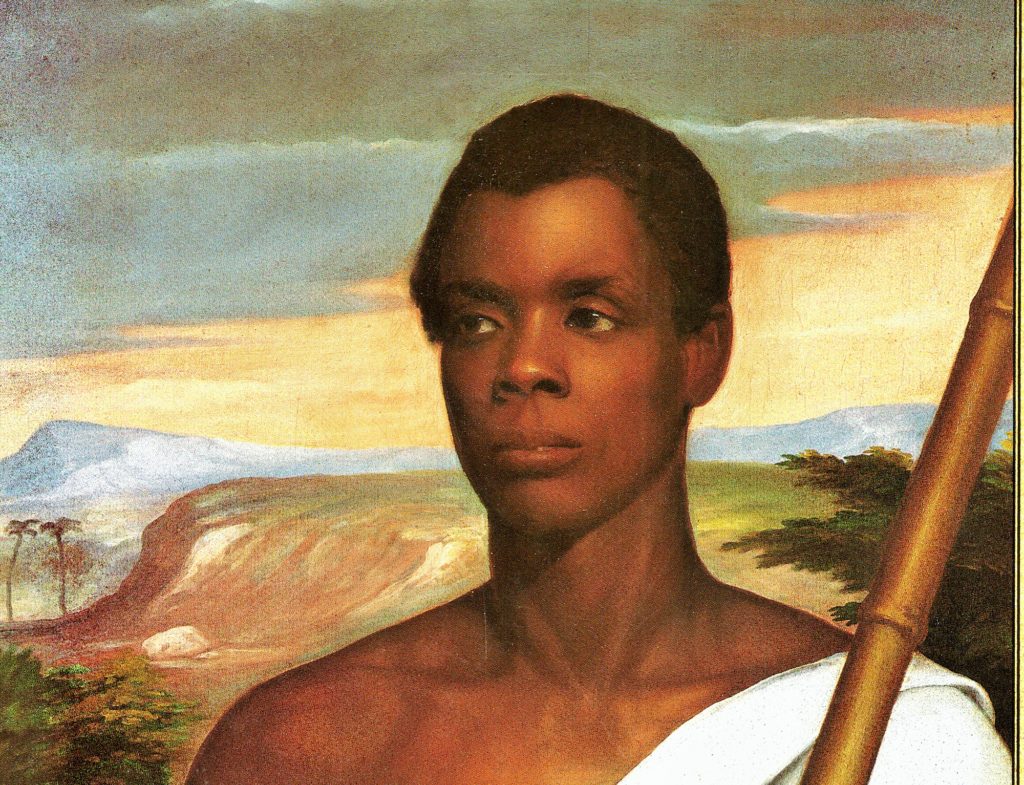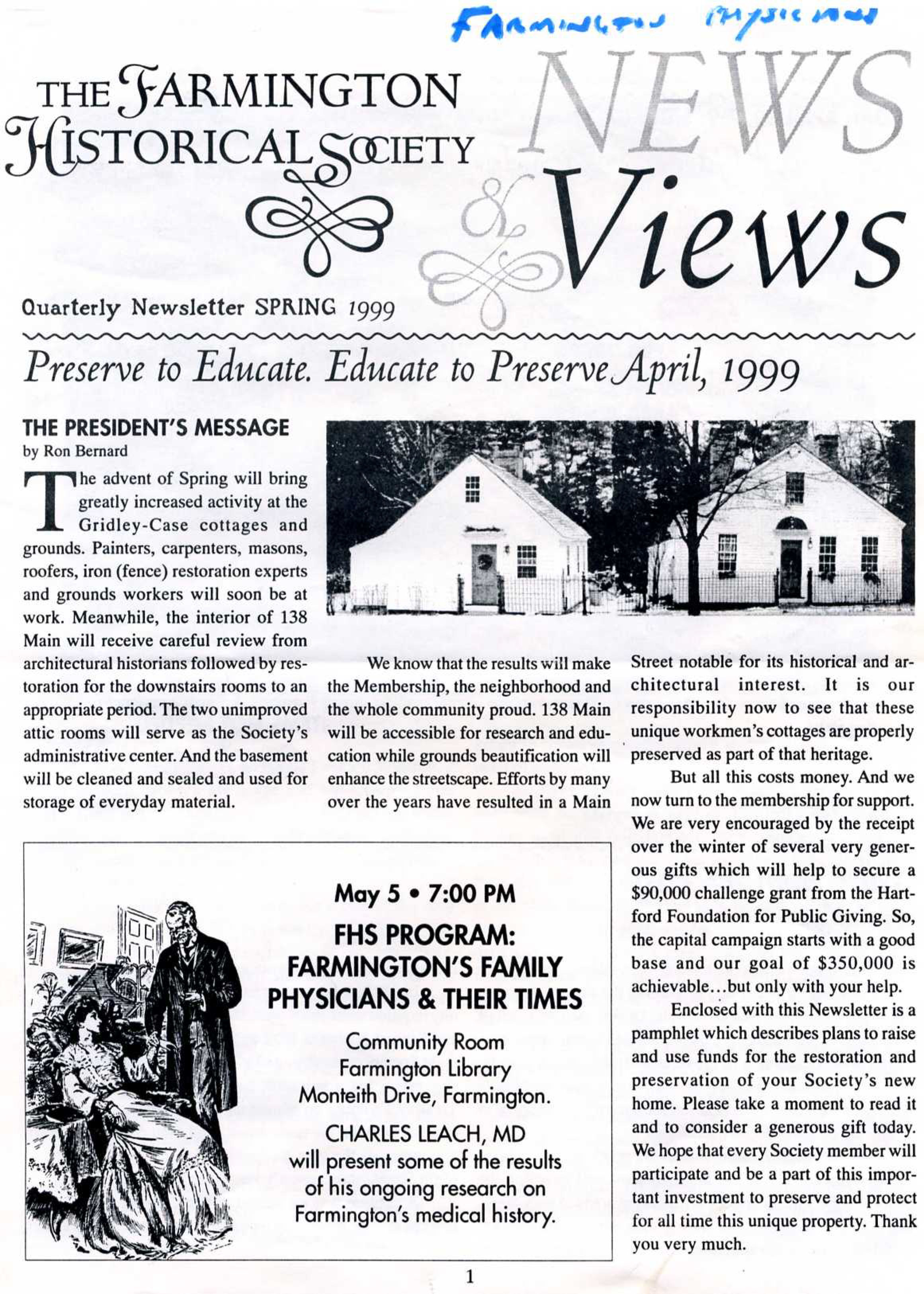The Farmington Library Company
In February 1839 the Village Library/Phoenix became the Farmington Library Company and moved to the old Academy building with William Porter as librarian. In his 1890 address at the opening of the later Village Library, Julius Gay vividly described a meeting of the then Farmington Library Company at the old Academy after the move there in 1839:
“The meetings were held on the first Sunday evening of the month immediately after the monthly concert. To this missionary meeting came the patrons of the library from the Eastern Farms, from White Oak, and from most of the districts of the town, each with his four books tied up not unusually in a red bandanna handkerchief. Here we waited, more or less patiently, the men on the right hand and the women on the left, while Deacon Hart gave us a summary of missionary intelligence for the month, and the Rev. William S. Porter elucidated his views of family government and the divine promises to faithful parents.
“Then, when Dr. Porter had expounded some suitable portion of the Scriptures and invoked the blessing of God upon us and on all dwellers in heathen lands, when the choir in the northeast corner of the hall had concluded our devotions with the Missionary Hymn, a large part of the meeting repaired to the library room below. Here were the books, a thousand or more, some in cases, some on benches, some on a big table, some in rows, some in piles,—but all scattered without regard to character or size or numbering in a confusion that would have astounded the orderly soul of Deacon Elijah Porter. The books purchased during the last month were announced, and the first reading of each was determined by a spirited auction at which every book was described as a ‘very interesting work.’
“Then after tumbling over the book piles with varying success, and with the excitement unknown in more orderly collections, of possibly unearthing some unexpected treasure, each had his four books charged, and departed to enjoy the spoils of his search.”
The nomadic town library once again was fated to move. In 1851, the Congregational Church’s Ecclesiastical Society discovered that the Farmington Academy’s open space, created since the school classes had left, was far too popular with programs deemed unsuitable to the church owners: circus-like performances, political orators (abolitionists) who caused riots, mesmerists, “uncouth magic lantern shows,” and war dances by “imitation Indians.” The Ecclesiastical Society bought out its two other partners, assuming sole ownership of the building and also forcing out the library. The books were moved to the office of Simeon Hart, who was appointed librarian again. He died soon after, and the again homeless library was moved to the stone store across Main Street.
Luckily, two years later in 1855, the town shared its space in the new record building—the town clerk’s office. This arrangement lasted for 35 years. A stipulation was added: that any responsible citizen could borrow books from the library “upon paying a reasonable compensation,” thus eliminating yearly subscriptions or buying of shares.



